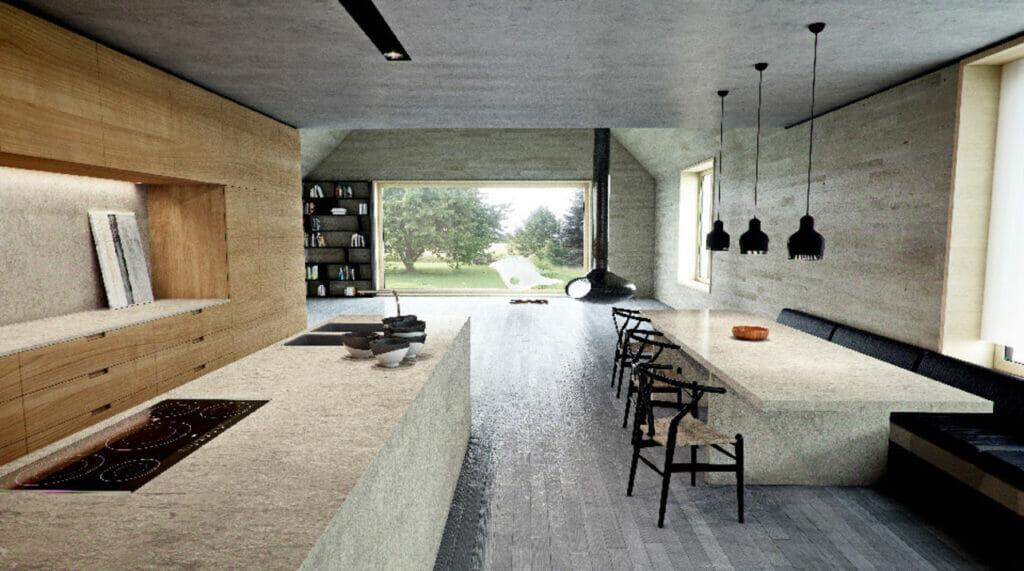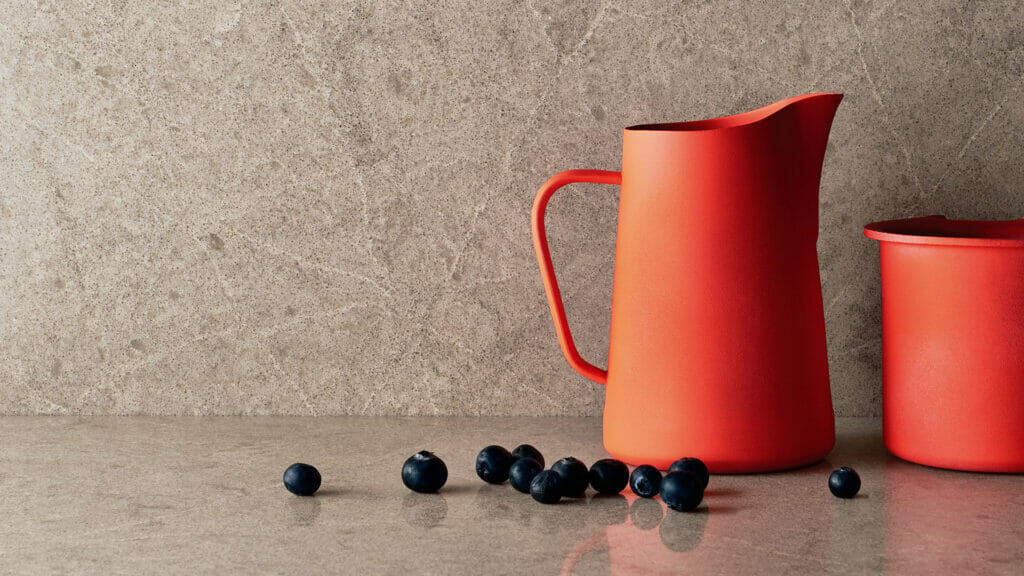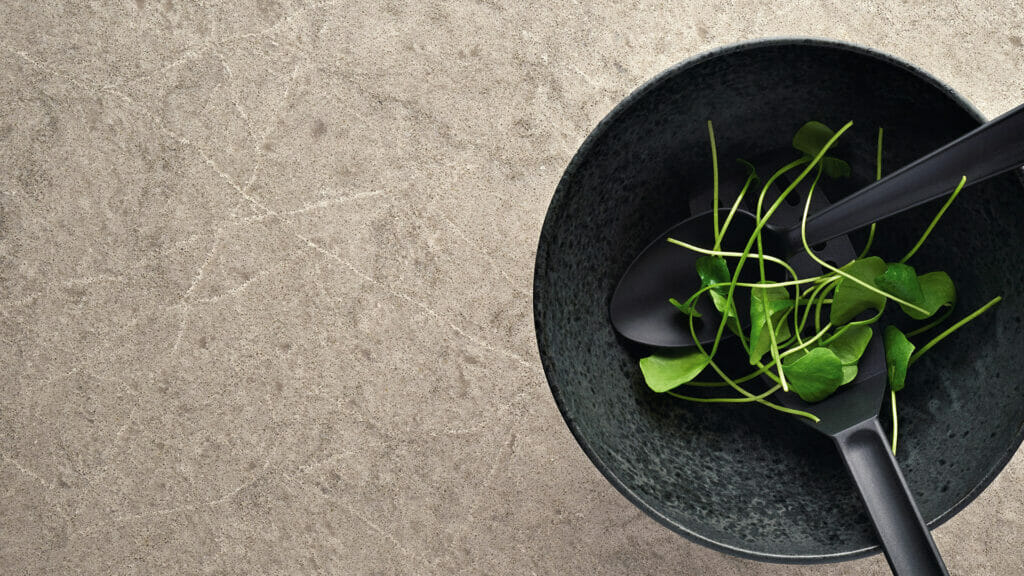Everything You Need to Know About Quartz Countertop Slabs
5 min read
Quartz countertop slabs appeared on the market as an alternative to stone that wouldn’t easily crack or break. They are created by mixing ground quartz minerals with resins and pigments and then molding it into a slab. Early quartz countertops were only available in cream and brown colors, despite the versatility of the pigments added to make it look appealing.
Caesarstone has been manufacturing quality quartz countertop slabs (composed of as much as 93% loose quartz), available in a variation of beautiful colors, patterns, and finishes since 1987.
In this article, we discuss why a quartz countertop is worth the investment if you’re considering remodeling your kitchen or bathroom.

Making of Quartz Countertop Slabs
Quartz is a less expensive alternative to conventional stone countertops like marble and granite. In addition to quartz minerals, quartz countertop slabs include up to 15% resin (an artificial type of plastic). Contrary to common opinion, poor quality quartz will inevitably lead to scratches and burns on the surface.
Advantages of Quartz Countertop Slabs
To determine if quartz countertops are worth the investment, you must first realize the advantages of quartz over other materials.

Sanitation and Maintenance Tips for Quartz Countertop Slabs
Quartz countertops are especially easy to clean and maintain, owing to their resin-based composition. They need little to no upkeep and can be washed simply with soap and a damp cloth. When it comes to quartz countertop treatment, there are a few things to bear in mind.
Factors to consider while buying Quartz Countertop Slabs
Given the proliferation of various products on the market, these countertops seem to be more accessible and affordable. Several brands claim to sell the best quartz countertops so it is necessary for buyers to consider important factors like prices, warranties, slab sizes, and styles that each brand offers.
In order to finalize and purchase the best quartz countertop slabs for your house, consider the following factors.
Different products have different prices, which is influenced by a number of factors. The sophistication of the model, slab size, distribution, and other associated expenses are some of these variables.
Each brand’s after-sale service is unique, and it represents the brand’s promise. Similarly, the manufacturer warranty and terms of exchange warranty services are distinct. Caesarstone offers a lifetime warranty for all its design but the Outdoor Collection (10 years).
Quartz slab seams can be noticeable and should be repaired so that they aren’t prominent. Always use a slab broad enough to cover all or most of your surface with minimal seams.
Each brand has its look, feel, and pattern. At the end of the day, what brand you choose is largely determined by your personal preferences.

Frequently Asked Questions (FAQs) About Quartz Countertop Slabs
Is quartz a natural stone?
No, quartz is engineered. Around 90-95% is ground quartz and the rest is made up of resins, polymers, and pigments. It is formed into large slabs. The quartz minerals are derived from the earth but the resulting slabs are not natural.
Do quartz countertops need to be sealed?
No, quartz countertops are non-porous, and sealing them is not mandatory. It has a built-in seal thanks to silicon dioxide, coloring agents, and bonding resins.
Where can you use quartz in your homes?
Your home can benefit from a quartz countertop in the kitchen and bathroom. Quartz can also be used on vanity tops, bar tops, desks (both office and home), etc. It can be used anywhere and now you can even take the luxury of quartz outside with Caesarstone’s Outdoor Collection.
Conclusion
The key benefit of quartz is the wide range of design and color choices available. Depending on your preferences, these designs can be a solid color or a more intricate pattern with flecks and veining. This mineral also has numerous applications. Countertops, backsplashes, over-hung, wall-hung, and vanity tops are all viable options.
Caesarstone provides 53 designs and eight edges. Our slabs come in many finishes and textures, including natural, polished, honed, concrete, and rough. Visit us today to learn more about our quartz countertops for your home.
{{ subtitle }}
{{ i.desc }}
{{ subtitle }}
{{ subtitle }}